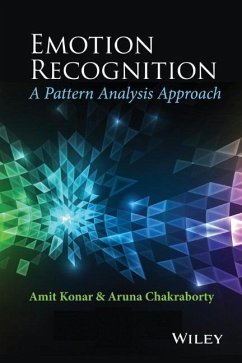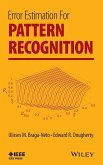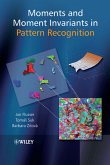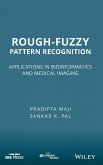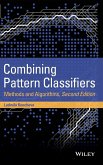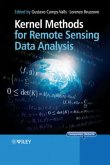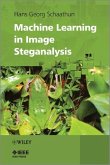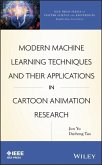Written by leaders in the field, this book provides a thorough and insightful presentation of the research methodology on emotion recognition in a highly comprehensive writing style. Topics covered include emotional feature extraction, facial recognition, human-computer interface design, neuro-fuzzy techniques, support vector machine (SVM), reinforcement learning, principal component analysis, the hidden Markov model, and probabilistic models. The result is a innovative edited volume on this timely topic for computer science and electrical engineering students and professionals.
A timely book containing foundations and current research directions on emotion recognition by facial expression, voice, gesture and biopotential signals
This book provides a comprehensive examination of the research methodology of different modalities of emotion recognition. Key topics of discussion include facial expression, voice and biopotential signal-based emotion recognition. Special emphasis is given to feature selection, feature reduction, classifier design and multi-modal fusion to improve performance of emotion-classifiers.
Written by several experts, the book includes several tools and techniques, including dynamic Bayesian networks, neural nets, hidden Markov model, rough sets, type-2 fuzzy sets, support vector machines and their applications in emotion recognition by different modalities. The book ends with a discussion on emotion recognition in automotive fields to determine stress and anger of the drivers, responsible for degradation of their performance and driving-ability.
There is an increasing demand of emotion recognition in diverse fields, including psycho-therapy, bio-medicine and security in government, public and private agencies. The importance of emotion recognition has been given priority by industries including Hewlett Packard in the design and development of the next generation human-computer interface (HCI) systems.
Emotion Recognition: A Pattern Analysis Approach would be of great interest to researchers, graduate students and practitioners, as the book
Offers both foundations and advances on emotion recognition in a single volume
Provides a thorough and insightful introduction to the subject by utilizing computational tools of diverse domains
Inspires young researchers to prepare themselves for their own research
Demonstrates direction of future research through new technologies, such as Microsoft Kinect, EEG systems etc.
Hinweis: Dieser Artikel kann nur an eine deutsche Lieferadresse ausgeliefert werden.
A timely book containing foundations and current research directions on emotion recognition by facial expression, voice, gesture and biopotential signals
This book provides a comprehensive examination of the research methodology of different modalities of emotion recognition. Key topics of discussion include facial expression, voice and biopotential signal-based emotion recognition. Special emphasis is given to feature selection, feature reduction, classifier design and multi-modal fusion to improve performance of emotion-classifiers.
Written by several experts, the book includes several tools and techniques, including dynamic Bayesian networks, neural nets, hidden Markov model, rough sets, type-2 fuzzy sets, support vector machines and their applications in emotion recognition by different modalities. The book ends with a discussion on emotion recognition in automotive fields to determine stress and anger of the drivers, responsible for degradation of their performance and driving-ability.
There is an increasing demand of emotion recognition in diverse fields, including psycho-therapy, bio-medicine and security in government, public and private agencies. The importance of emotion recognition has been given priority by industries including Hewlett Packard in the design and development of the next generation human-computer interface (HCI) systems.
Emotion Recognition: A Pattern Analysis Approach would be of great interest to researchers, graduate students and practitioners, as the book
Offers both foundations and advances on emotion recognition in a single volume
Provides a thorough and insightful introduction to the subject by utilizing computational tools of diverse domains
Inspires young researchers to prepare themselves for their own research
Demonstrates direction of future research through new technologies, such as Microsoft Kinect, EEG systems etc.
Hinweis: Dieser Artikel kann nur an eine deutsche Lieferadresse ausgeliefert werden.

